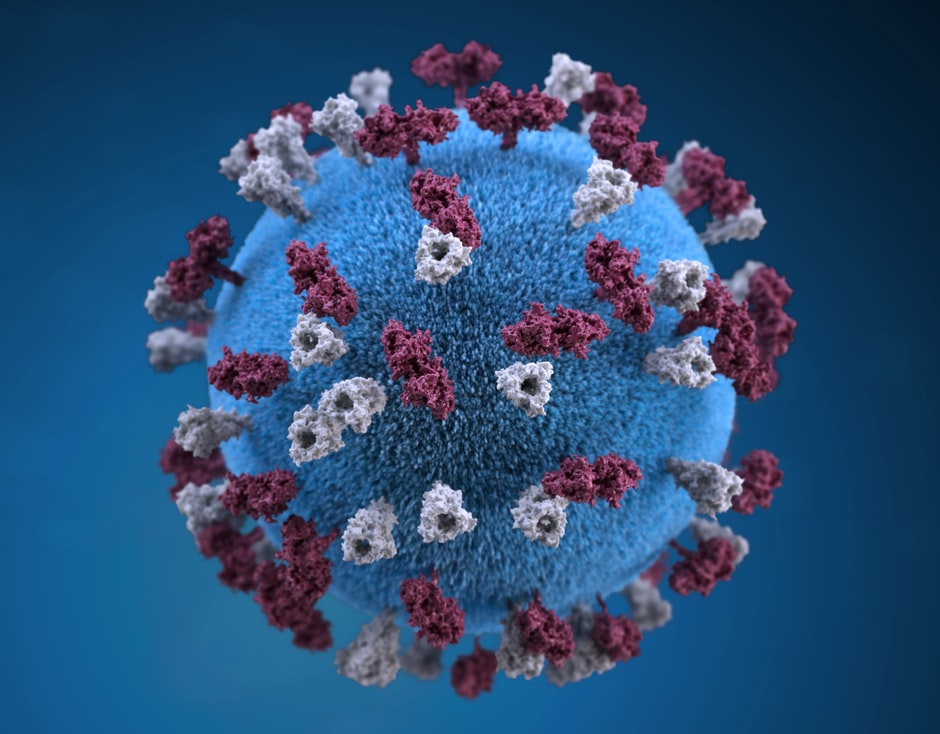After some initial uplifting optimism that the common challenge we face might bring us Americans together to some extent, we have (entirely predictably) fallen back to being utterly divided in how we experience the pandemic, and in how we think our country and our government should respond to it.
To Democrats, the COVID-19 pandemic is a paramount threat that must be defeated at all costs—even at the astronomic price to our economy that a total shutdown of in-person gatherings may bring. Republicans, at least some of the most vocal ones I’ve been talking to, are focusing more on the human and economic cost of that shutdown itself, believing that we’re way too close to killing the patient with the medicine, and inflicting unnecessary social and economic harm upon ourselves out of fear of the virus.
Given the fact that it may take well over a year for public health professionals to develop a vaccine for the virus, what should our course be in the meantime? Will flattening the curve lead us to a more manageable stasis, a situation where we can reclaim some normalcy while still being vigilant enough to avoid major resurgences of infections? Or will heading off tragedy require a constant state of enforced lockdown for the rest of the year and beyond?
I tend to be more convinced of the former, and I think that we should be keeping a tight lid on most of the country until we’re at least able to put in place a continuous stream of testing as South Korea has done. We can reduce restrictions when we’re confident that we have a fairly complete picture of the virus’s foothold on the country.
But let’s be honest—I look at this from the narrow perspective of someone who can at least somewhat afford that economic shock, and who believes in the duty of the government to take a lot of the heat.
To be clear, doing what I think we should be doing is an extraordinary public task, even for the most prosperous country in history. Our government would need to lead a massive mobilization in three different directions, with missions to stanch the economic bleeding with multiple stimulus packages, marshal scientific expertise towards a medical solution, and foster fundamental changes to our society’s labor system that enable everyone who can be productive remotely to do so. It will be incredibly expensive, and the government’s ability to pull it off is predicated on Americans’ shared faith in that government. This is by no means guaranteed.
But at the very least we should be having this conversation. We need to have an honest exchange about how much economic suffering we’re willing and able to bear, and how much preservation of human life we expect it to bring. Right now we’re just yelling past each other, muddying the public discourse—and this is the worst possible moment in which to do that.
Democrats clearly think this moment itself is proof that our economic system is starting to crumble under the weight of its own dysfunction, with the millions of people without health insurance being much less likely to get tested without government assistance, while other millions who couldn’t afford to stop working endangering those around them.
But the Republicans just as clearly see this as an opportunity being taken by ruthless leftists to cram a socialist reformation down the throat of an unwilling American populace. The real problem in their eyes is an over-regulated medical field whose innovation is so choked off by red tape that health officials struggled to get approval even to use testing kits that weren’t approved by a faceless bureaucrat.
Democrats will then counter that the proper response to complaints that the government isn’t working well for the people it serves is to make it work better, not make it do less.
And around and around we go, all the time trading accusations of bad faith and ill intentions for the country, at a time when we’re in desperate need of mutual trust to help drive forward our response to this crisis.
It’s gotten to the point where we can’t even hear each other at all. When blues warn that calling it the “Chinese virus” can lead to hatred being channeled towards Asians, all the reds hear is the label “racist” being hurled their way. And when reds—particularly the president—bring up the idea that maybe we’ve gone overboard in our society-wide lockdown, all the blues hear is a declaration that the stock market is more important than human life. Neither of these is truly an accurate picture of the other side’s message, but they’re rooted in the ill will that’s been building between the poles for a while now.
We can be better than this, and we really must be when it comes to striking the right balance to address this pandemic. If we can restart our civic conversation, we have a much better chance to harness the innovative spirit and industrious ethic that built the modern incarnation of the nation that, for better or worse, continues to lead the world.





10 thoughts on “Now, More Than Ever, Red and Blue Need to Talk”
For those who believe it’s important to call it the “Chinese” Coronavirus, what do you see as the benefits of describing it this way?
Personally, I don’t see any benefit to calling it that. But those who I’ve talked to have emphasized the blame that China deserves for lying to the world about the outbreak, and that China deserves to be marginalized for it. I don’t think this label really achieves that, and it has lots of harmful side effects. But I also have to accept that the people who maintain this line are sincere in their reasoning.
Some percentage of it is just “defiance” towards those who say “Don’t call it that.” It’s just push back against political correctness, same as always. What I hope calling it the Chinese Virus does is force people to remember when this settles down that the Chinese Communist Party needs to be held accountable. I’ll let others determine how.
I certainly don’t disagree with the notion that the CCP should be held accountable for their response, but how can we do that when our own government minimizes the threat? And I feel that chalking it up to “just ‘defiance’” also minimizes the danger that the conflation of ethnically Chinese people with that government poses. If our own loved ones are threatened, we’re more sensitive to it.
The problem is that we conflate Chinese the nation with Chinese the people as a race. The Taiwanese are racially the same and yet their response to the threat is exemplary. On the other hand, it is important for the entire world not to allow the Chinese government to skirt responsibility for how this virus became a global pandemic. I prefer the Wuhan virus as a valid synonym for Covid-19. Most of the global media did as well until the Chinese govt pressured the WHO. We should state explicitly that there is no racial tinge to these labels.
As with so many of our gridlocked issues, polarized sources of information seem to be playing a hugely negative role in shaping partisan responses to the virus. It’s one thing to have a legitimate debate about the ethical and economic dimensions of quarantines, quite another to be forming our opinions on the basis of different sets of information concerning the magnitude of the pandemic, the deadliness of the virus and the timeline for a vaccine or cure.
Can’t argue with you there.
Randy’s call for “brave discussions” is almost precisely the same, but sounds better than, the concept of “The Taboo Debate” and “Taboo Trade-off”s discussed here. https://www.overcurious.org/blog/the-taboo-debate
What I discern is that the bipolar political response is a reflection of the differences between blue urban and red rural where the concerns are different. The urban MSM talks to its urban audience. The second related factor is ideological, where blues look for centralized command responses from government while reds believe in a decentralized set of responses tailored to different circumstances. From a purely risk management point of view I would favor a decentralized response that gets coordinated at the top but not directed. Our nation is perfectly suited to this strategy.
And I think that could make sense, though our government is not only not coordinating that response, but doing things that are actively thwarting coordination. And their minimization of the thread seems to have hurt us far more than that of the Chinese government.